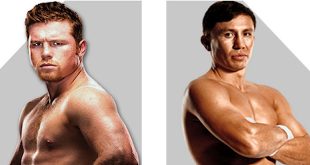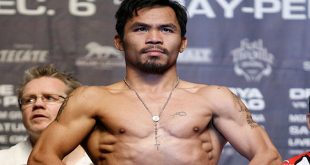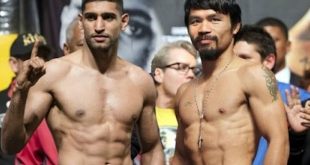Perfection, life’s teleological goal. A transcendent almost mystical ideal to which mankind inexorably strives. Any fleeting glimpse of it should be cherished, for the world is riddled with fallibility. Yet modern boxing fears perfection, the fistic fraternity pour scorn upon it and attempt to undermine its presence. The holders of the flawless records are seemingly tarnished by association.
Ricky Hatton’s career is intrinsically linked to this phobia. He is yet to taste defeat in 42 contests yet every subsequent victory is met with doubt, frustration and rebuke. It is the paradox of the “0” that something so seemingly irrefutable can give rise to such misgiving. Hatton’s unblemished achievements are construed by a large number as questioning validity as opposed to asserting greatness.
Perhaps boxing’s rejection of perfection is linked to the fact that a seemingly incorruptible ideal can be controlled by greed, politics and dishonesty. There is little valour outside of the ring in the “noble art” and this will inevitably introduce subjective versions of perfection. Flawless records can been cajoled and manipulated by gluttonous promoters who feed heavily off of the rewards.
In Hatton’s case, his previous promoter steered him through a selection of journeymen, solid fighters and capable yet aging operators for his first 38 contests. This was an overly prolonged education and the boxing public grew restless.
The promoter finally ceded to public demand and delivered the great Kostya Tszyu, who Hatton vanquished in a titanic battle. Seemingly, Hatton and his perfect record were legitimised, he was finally acknowledged as a “pound for pound” fixture rather than an overprotected fraud. Strangely, the promoter was dismissed by Hatton following the Tszyu fight. The carefully constructed cash cow had kicked back and chosen to move on to pastures new.
The timing of this divorce came at a critical period in Hatton’s career. He had proved himself to the masses and had high profile promoter who had finally shown that he could deliver the big fights.
Hatton’s career since then has been uninspiring and once again his perfect record hangs above his head like a pugilistic Sword of Damocles. The victories over Maussa, Collazo and Urango have produced far more condemnation than admiration and even though they all proved title winning efforts, the learned public are not so easily blinded by aesthetic.
The victory over Tszyu is fading into distant memory and despite over 40 fights, Hatton is yet to face a world class operator at his peak.
Unfortunately his supposed “career defining” contest against Joes Luis Castillo will not quell the discontent. Even if Hatton is successful, it will be dismissed as a hollow victory over a “blown-up” lightweight who, in popular opinion, was fortunate to repel the unheralded Herman Ngoudjo.
The true challenges lie with two other men, both of whom, like Hatton, are desperately seeking validation to their own faultless excellence. Whoever arises triumphant from the potentially epic Miguel Cotto, Floyd Mayweather and Ricky Hatton triumvirate will truly be able to embrace perfection.
Boxing itself does not suffer from the phobia it was accused of earlier in this article, that can be seen by the exalted regard in which Rocky Marciano is held and indeed the vitriolic backlash against Nikolay Valuev attempts to surpass his achievements.
The sport, in its modern incarnation, instead fears an environment where statistics overshadow achievement and the elite avoid each other in order to continue their own, ultimately futile, journeys to perfection.
 Boxing News Boxing News
Boxing News Boxing News






